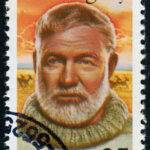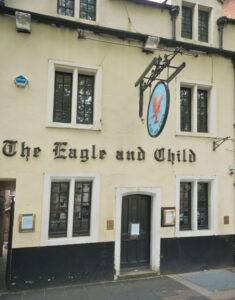Written by Haley Boyce

Avoiding the wrong creative writing degree program and finding the right one are equally critical. The best way to assure you graduate with fueled passion and ever-increasing confidence to achieve your goal is to select a program that makes you feel safe enough to be vulnerable with your heart on the page. That’s a shared objective among fellow creative writing students. Getting there, however, will look different for everyone.
Choosing a Creative Writing Degree Program
Everyone’s got an opinion about something. You’ll find it’s a truth so universal that it also applies to finding the best creative writing program. But here’s the thing – even if you talk to a hundred different people, poll your followers on social media, or personally ask former degree candidates — the only opinion that matters is yours. You’ve got to find what fits your writing style, your classroom preference for coursework and budget, as well as your publishing goals.
Sure, asking around will inform your decision (you’ve got to start somewhere, right?), but the next step is to ask yourself what kind of structure you think you might need to become the writer you know you can become. Here are a few areas to consider when making your decision.
The First Steps to Finding Your Creative Writing Degree
Since you’re here, you’ve already begun the initial search for a college or university program where you can earn your creative writing degree. The next best step is to reach out to an advisor. That university below that piques your interest? Click on it.
Whether you’re starting your degree as a high school graduate whose prom corsage stills sits on top of your dresser, or you’re returning to school after a long hiatus with a mortgage and a couple of car seats in the back row of the minivan, starting a degree puts prospective students like yourself in the vulnerable space of risk-taking. This is why speaking with an advisor should be the first thing you do when looking for a degree in creative writing.
You’re not expected to know everything about creative writing degrees if you’re just starting out. But who does? Your advisor. If you can’t picture yourself in full commencement regalia, writing degree in hand on graduation day, your entrance advisor will help set the scene for you. An advisor will lay the foundation for everything you need to know to successfully earn your degree in creative writing, one step at a time.
Some questions to ask:
- How long does it typically take to complete a creative writing degree?
- If you are completing an undergraduate degree, ask what prerequisites are required
- If you are working toward a graduate degree, it’s good to ask if there is a maximum amount of time in which you need to complete your degree
- How much does it cost?
- What financial aid options are available?
- Is there a minimum GPA that must be maintained to remain in the program?
- What is the application process like?
- What is the application timeline?
- Are classes online, in-person, or hybrid?
- Who might my professors be?
- What is the graduation rate for students in the creative writing program?
- How big is the creative writing program?
- What is a typical class size?
- What jobs have degree candidates been hired for after graduation?
- Do creative writing students at this school go on to become successful writers?
After speaking with an advisor, you should feel informed about how the creative writing program is best suited for you, and confident about your future as a writer. If you’re not feeling these two things, it’s probably time to move onto the next writing program on the list.
Pinpoint Your Goals as a Writer and You’ll Find a Degree that Can Deliver You There
 Having an envisioned fate for your writing, a daydream about where it lands, should steer your purpose for enrolling in a college or university’s creative writing program. Where you picture your work when it’s finished should be your driving force when selecting the right school for you. It isn’t likely that you’ll find a creative writing program that only focuses on one genre or purpose, so the odds are in your favor that you’ll find a school that suits your goals.
Having an envisioned fate for your writing, a daydream about where it lands, should steer your purpose for enrolling in a college or university’s creative writing program. Where you picture your work when it’s finished should be your driving force when selecting the right school for you. It isn’t likely that you’ll find a creative writing program that only focuses on one genre or purpose, so the odds are in your favor that you’ll find a school that suits your goals.
If the comparisons between different creative writing programs have you confused, ask yourself: Who do I want to read my work when it’s done? If you live in Illinois and you’re envisioning your young adult novel in the hands of a fourteen-year-old who lives in London, your goal is world domination through mass publication. Or maybe you see yourself producing a quarterly periodical featuring local celebrities, artists, and businesses. Did you go to a fringe festival last summer and now you’ve got a script needing to be workshopped before producing a play of your own? Each of these scenarios is attainable.
The steps you take to reach them begin with knowing what you want, and then choosing the best school that can help you get there.
When you’re researching different schools to earn your creative writing degree, scan the current course catalog to compare which programs offer the courses that best match your goals.
Online Creative Writing Degrees Vs Hybrid and In-Person Options
Not all college experiences are created equal, and with good reason. You probably already have in mind a general idea of where you will earn your degree in creative writing — either online, in person, or some hybrid of the two. Which format you choose should be carefully considered with eyes wide open to the pros and cons of both. Let’s suss out a few options.
Online Creative Writing Degree Programs
Pros:
Not going to lie, one of the beauties of taking classes online is logging in from the comfort of your own home. Your commute time is limited to how long it takes you to get to your computer and log in to class. No need to miss your puppy while you’re away because she’s in class with you, the sweet warmth of her head resting on your lap while you discuss themes and literary craft.
Technology is more advanced but easier to use all at once, thus making it easy to share your drafts with professors, classmates, small writers’ groups, workshops, and even potential agents and editors you might meet through your online creative writing degree program.
Earning a creative writing degree online can be an enlightening experience, especially as a writer, because of the potential for people to join classes from all over the world.
Cons:
Well, think of every frustration you’ve ever had with technology then consider it a possibility while pursuing an online creative writing degree. The great news, though? It’s almost always a glitch with a fixable outcome. Your professor will more than likely be understanding of the occasional technological error (They’re writers! Empaths! They care!). Another thing to consider is your own personality type. Because you’re in an online setting, merely showing up won’t be enough to make your presence known and participating in a class for an online degree in creative writing will one hundred percent demand that you unmute your mic and speak up.
On-Campus Creative Writing Degree Programs
Pros:
Earning writing degrees in person versus online writing degrees lends the opportunity to sneak in one-on-one facetime with professors both before and after class, as well as scheduled office hours. This becomes important in networking, especially in the field of creative writing where who you know is just as important as that talent you’ve got. This face time with professors is completely doable in an online setting too – just requires a bit more planning and communicating with the professor or instructor.
Cons:
The commute. It’s a time-suck if you live far enough from campus. An open parking spot is almost always difficult to find, and then when you do find one you’ve got to make sure your parking pass is displayed. Some schools will require payment for the semester up front when you register for classes. Even if you only have class on campus once a week. If you’re getting to school by bus or other public form of transit, there’s the added concern of everything running on schedule. To avoid being late for class, you’ll need to leave home with enough time for issues that are beyond your control. It very well may be that the school that best aligns with your goals as a writer strictly offers classes in-person. If that’s the case, weigh the benefits of attending that school against your need to free up the time it takes to get from your front door to your classroom door.
Hybrid Creative Writing Degree Programs
Pros:
This is truly the amalgamation of an online writing degree and earning one in-person.
The benefits you’d gain from both online and on-campus education are both prominent in a hybrid program.
Cons:
It’s possible that a hybrid program would allow you to take classes while living in a different state or country while also requiring you to be on campus for at least a small portion of the time that you’re earning your degree. If this is the case, the cost of your education just increased by the price of an airline ticket, lodging, possible car rental, and food while you’re there. Add a little more to that if you’ve got a pet or plants at home that needs a sitter while you’re away.
Raise Your Hand if You Have Imaginary Conversations with Renowned Writers When You’re in Need of an Authorial Pep Talk?
 If your hands are up like ours are, you’ll want to file away these words about hard work from the greats who were once novices too.
If your hands are up like ours are, you’ll want to file away these words about hard work from the greats who were once novices too.
“It’s none of their business that you have to learn how to write. Let them think you were born that way.”
~ Ernest Hemingway
“[As a writer] you have to have the three D’s: drive, discipline and desire. If you’re missing any one of those three, you can have all the talent in the world, but it’s going to be really hard to get anything done.”
~ Nora Roberts
“Cheat your landlord if you can and must, but do not try to shortchange the Muse. It cannot be done. You can’t fake quality any more than you can fake a good meal.”
~ William S. Burroughs
“When I sit down to write a book, I do not say to myself, ‘I am going to produce a work of art.’ I write it because there is some lie that I want to expose, some fact to which I want to draw attention, and my initial concern is to get a hearing.”
~ George Orwell
“We are all apprentices in a craft where no one ever becomes a master.”
~ Ernest Hemingway
“Making people believe the unbelievable is no trick; it’s work. … Belief and reader absorption come in the details: An overturned tricycle in the gutter of an abandoned neighborhood can stand for everything."
~ Stephen King
“The greatest part of a writer’s time is spent in reading, in order to write; a man will turn over half a library to make one book.”
~ Samuel Johnson
“If it sounds like writing, I rewrite it. Or, if proper usage gets in the way, it may have to go. I can’t allow what we learned in English composition to disrupt the sound and rhythm of the narrative.”
~ Elmore Leonard
“Write. Rewrite. When not writing or rewriting, read. I know of no shortcuts.”
~ Larry L. King
Is a Creative Writing Degree Worth It?
A writer is an artist — someone for whom the need to set pen to page is so critical that they must write lest they combust with the power of the story building within them. There are those who believe (perhaps naively) that getting an education within the structure of a creative writing program will staunch their creative flow, ultimately ruining their innate ability to artistically express themselves.
But if the goal is to tell a story so well that its beauty is undeniable to agents and editors and readers alike, and unless you’ve got a connection to the aforementioned powerhouses in publishing, earning a degree in creative writing is well worth it.
Having talent but not knowing where to go with it is like playing pin the tale (forgive the pun) on the donkey — you’ve got this gift that has been given to you, but without knowing what to do with it, you could be blindly heading in the wrong direction. Good creative writing programs are designed to point you in the right direction by equipping you with the skills needed (think elevator pitches, look books, query letters) to navigate your way through the publishing stratosphere. You might have the talent, but do you have the connections? Success stories don’t often start with, “So I was sitting at home, keeping my talent to myself, when Simon and Schuster came knocking on my door, begging me to choose them.”
You know you’ve got the skill; the right creative writing program will show you exactly what to do with it.
While some classes offered to you will focus on the business side of publishing, others will bring a sense of balance with a focus on your artistry. If one of your hesitations about enrolling in a creative writing program is the myth that you’ll become an automated word machine devoid of emotion thus ending your writing career before it’s even begun, it’s time to write the following on a sticky note and post it on the corner of your computer monitor: Fear is a liar. Any fear-laced thoughts about working on your craft are epic fallacies sent to destroy your purpose. Writing classes are about buffing the diamond that’s already there.
If we all stopped honing our craft when we deemed our own work good enough, bookshelves would be heavy with mediocrity.
More often than not, creative writing instructors expect that you are coming to class as someone who has at least attempted to write a story of some kind. You will likely be expected to bring this to class to be workshopped by your peers. It is during this process that you will experience both validation and challenges of your creative mind. You will see through this process that rather than your ideas shriveling up, they will grow roots and branches extending into depths of your imagination that previously remained untended. Earning your degree in creative writing will get you there. Rare is the person who became worse at something because they tried to do better.
Writers Groups and The Greats
 Accountability is the name of the game when it comes to writers’ groups. Whether an informal gathering of fellow writers every once in a while, or a structured set of hours scheduled on the first Friday of every month, writers need one another in order to become better. Some of the most successful authors of all time have proven this to be true.
Accountability is the name of the game when it comes to writers’ groups. Whether an informal gathering of fellow writers every once in a while, or a structured set of hours scheduled on the first Friday of every month, writers need one another in order to become better. Some of the most successful authors of all time have proven this to be true.
Tucked into The Eagle and Child pub in Oxford, England, the writers C.S. Lewis, J.R.R. Tolkein, Charles Williams, Warren “Warnie” Lewis, Owen Barfield, Colin Hardie, Adam Fox, Hugo Dyson, Lord David Cecil, and Nevil Coghill gathered informally for a twice-weekly meeting of the group they called The Inklings. The scent of beer and tobacco drifting in the air, Tuesday mornings were dedicated to conversation spanning various topics, but Thursdays were dedicated to evenings spent meeting in Lewis’s rooms at Magdalen College, where Inklings read aloud from their works-in-progress with the purpose of receiving critique from other members in the group. It is through this process that Lewis wrote and revised some of his most profound work including The Problem of Pain, The Screwtape Letters, Out of the Silent Planet, The Great Divorce, and Miracles. With advice from The Inklings, Tolkein workshopped chapters from The Lord of the Rings, and Williams worked on chapters from All Hallows Eve in addition to his poetry. This group of writers met over the span of approximately twenty years (1934 – 1949), helping one another to perfect their works in what Tolkein called “half-formed imitations and ideas” by those who “dabbled in ink.”
Areas of Concentration Found in Creative Writing Degree Programs
Not all creative writing degrees are created equal. We’ve already weighed our options with online versus in-person programs or a hybrid of the two, but what about specific areas of concentration? Let’s explore.
Creative Writing and Publishing
If you’re planning a future for yourself that includes either being published or working at a publishing house, it is critical to find a college or university that boasts a creative writing program that places a balanced emphasis on developing craft and what to do with your work once it’s ready for publication.
Looking for a program that offers the word “publication” in its degree title is the most obvious way to see if the school offers what you’re looking for in the publishing world. However, it very well could be that a college or university will include publishing under the big umbrella of creative writing. Therefore, deciphering a program that meets your educational needs as a future domineer of publishing means that you will need to once again consult the course catalog for several schools to see what courses they offer. You can also tell how much emphasis a program places on concentrations by how many courses, and sections of that course, are offered. For instance, if you’re looking to spend a good amount of time learning the ins and outs of publishing, look for classes that are described as such in the catalog, and look at how frequently that course is offered. Sometimes a course will only be offered in the spring, or only taught by one teacher every so often. It’s difficult to know those things based on a course description that is limited to a certain character or word count, so to get the best answer make a plan to ask your entrance advisor how many (and how often) publishing courses are offered.
It’s also possible that a creative writing program will dedicate a mandatory completion of a course or residency that is solely dedicated to how to step your foot into the publishing pool. In this sort of situation, a school will offer some courses related to publishing during the academic school year, but the bulk of their information will be offered through an intensive study in publishing during the interim seasons of winter or summer.
English and Creative Writing
The connection between the subjects English and creative writing is undeniable, but it is how the two are studied that sets them apart. English sets its focus on the analysis of literature. Courses are offered in an array of genres, and the writing is limited to literary analysis essays written in response to a prompt given by a professor. Discussions in English classes will typically focus on theme or plot or character development, sections of the story that stood out for any number of reasons. Creative writing, on the other hand, spends some time reading work by published authors with an emphasis on their craft. Class discussions will be spent asking what stood out to you as a reader (symbolism, tone, rhythm, etc.) and figuring out how the author executed that artistry.
The goal in literature classes is to dissect a story or author’s craft. The goal of creative writing is to do the same and then emulate it.
Fine Arts and Creative Writing
A fine arts degree with an emphasis in creative writing is an excellent choice for those who have the desire to explore the history, skill, methodology, and industries associated with their area of concentration. If you’re pursuing a college or university degree, you’re looking to find a program that offers an undergraduate degree known as the Bachelor of Fine Arts (BFA), or if you’ve already got your undergraduate degree, you’re looking for a program that offers a Master of Fine Arts degree (MFA). Areas of concentration for a BFA or MFA include visual arts, theater and dance, film and photography, music, and creative writing.
Summer Writing Programs
 If you know studying creative writing is what’s going to fill the aching void for you but you’re not quite ready to commit to a degree program, a summer writing program might be a great way to test the waters. Definitely search for a college or university that offers a summer school session with creative writing classes to get the full scope of the experience. Not all colleges require you to be an admitted student in order to enroll in a class. Though the grade and course credit would likely be null and void if you took a creative writing course (or any other subject for that matter), it is one that will allow you to develop your craft in a workshop setting guided by a professor who is more than likely an accomplished author themselves.
If you know studying creative writing is what’s going to fill the aching void for you but you’re not quite ready to commit to a degree program, a summer writing program might be a great way to test the waters. Definitely search for a college or university that offers a summer school session with creative writing classes to get the full scope of the experience. Not all colleges require you to be an admitted student in order to enroll in a class. Though the grade and course credit would likely be null and void if you took a creative writing course (or any other subject for that matter), it is one that will allow you to develop your craft in a workshop setting guided by a professor who is more than likely an accomplished author themselves.
Another way to get exposure to creative writing courses is to attend a local writers conference. Conferences take place all around the country, some more renowned than others but all offering the potential to give you an education about authorial craft. Begin by searching for one in your town or state and challenge yourself to step into an opportunity to network with other writers who are as obsessed and focused on their art as you are on yours.
It’s critical to know that conferences and interim college or university courses are not limited to summertime. Few things feel worse as a writer than feeling that deep sense of inspiration and urgency only to find that the timing was off and you’ve missed the enrollment date and have to wait for next year’s summer enrollment to open up.
So plan ahead: Look now, choose the dates and conference or interim session that works for you, and commit to going as soon as you can.
Creative Writing Degrees Are Offered at Every Level
 You are probably already aware that there are varying degrees in higher education – associate, bachelor’s, master’s, and doctorate. Almost any area of concentration can be studied while earning the aforementioned degrees, though the requirements will differ per concentration.
You are probably already aware that there are varying degrees in higher education – associate, bachelor’s, master’s, and doctorate. Almost any area of concentration can be studied while earning the aforementioned degrees, though the requirements will differ per concentration.
Choosing which degree to work toward is subject to individual life circumstances. The great news is that the only wrong way to enhance your writing ability is to remain stagnant by thinking you don’t need to improve at all.
So, if earning an associate degree is your first step, or if you’re ready for your doctorate (or even post-doctorate), time spent reading, writing, and workshopping will inevitably result in stronger authorial craft. Here’s what each of the degrees means and what they can offer you as a lifelong learner of your craft.
Creative Writing Associate Degrees
An associate degree is earned at a community college, junior college, technical colleges, or colleges or universities that offer an associate degree (not all do). The benefit of earning any degree, not just one in creative writing, is that the cost is significantly lower. In many cases, creative writing associate degrees are designed to give students an education in creative writing while simultaneously preparing them to transfer to a college or university upon the completion of their Associate of Arts degree.
Like most associate degrees, a two-year creative writing degree has a requirement to complete a minimum of sixty credits. Courses taken will be made up of creative writing classes in addition to general education requirements. And though associate degrees are typically designed to be completed in two years, the amount of time it takes to finish is contingent on how many credits you complete per term. As a creative writing student, your course requirements could look something like this:
- Introduction to creative writing
- First year composition
- Math (sorry)
- Foreign language
- Introduction to poetry
- Introduction to writing fiction
- Interpersonal communication
- Social-Behavioral sciences
- Natural science
- Humanities
Odd Jobs
 Creating art is the first half of storytelling, gaining readership is the second half of it. This step takes time, and often means working a day job to keep the lights on while writing during your time off. The same is true for the authors who inspire us.
Creating art is the first half of storytelling, gaining readership is the second half of it. This step takes time, and often means working a day job to keep the lights on while writing during your time off. The same is true for the authors who inspire us.
Take a look:
- Kurt Vonnegut: Car salesman
- Margaret Atwood: Barista
- Charlotte Bronte: Governess (talk about art imitating life! We’ve got questions, Jane.)
- Stephen King: Janitor
- Douglas Adams: Bodyguard
- John Greene: Children’s hospital chaplain
- Octavia Butler: Potato chip inspector
- Agatha Christie: Apothecary’s assistant
- William Faulkner: Postmaster at Ole Miss
- Harper Lee: Ticket agent for Eastern Airlines
- J.D. Salinger: Luxury cruise entertainment director
Creative Writing Bachelor's Degree
 Your approach to a bachelor’s degree in creative writing depends on whether you transfer from a community college or other college or university where your general education requirements were completed, or if you choose to complete your entire degree from start to finish at the same school. If you begin the program as a brand-new student, without transferring from another school, you will be required to complete your general education requirements prior to delving deep into the field of creative writing.
Your approach to a bachelor’s degree in creative writing depends on whether you transfer from a community college or other college or university where your general education requirements were completed, or if you choose to complete your entire degree from start to finish at the same school. If you begin the program as a brand-new student, without transferring from another school, you will be required to complete your general education requirements prior to delving deep into the field of creative writing.
Though your literature and elective classes will and can be connected to your concentration in creative writing, you will likely be joined by other students whose major is outside your realm of focus. It’s easy to feel like bypassing these general education courses would be preferred to spending time in a statistics class, but look at this way: As a writer, every single experience adds to your bank of knowledge that you can pull from when composing a new story. For some, taking a math test is an excruciating form of torture. But save that emotion and apply it to the struggle a character faces in a story you’ll later write.
Aside from giving you a balanced education which ultimately shapes you into a well-rounded, contributing member of society, the non-writerly components of earning a bachelor’s degree make you a stronger writer by giving you more life experience to pull from when storytelling.
According to a study conducted by Pew Research Center, nearly four in ten Americans ages 25 and older hold a bachelor’s degree (that’s 37.9% of adults in this age group). Additionally, 14.3% of adults in this age group also hold a graduate or professional degree. Though not a requirement for every field, and certainly not one to be a successful writer, a bachelor’s degree is becoming more of an expectation from companies looking to hire new employees. A degree of this level makes a prospective employee more competitive in the hiring process and carries the potential to earn a higher wage than if they did not have their degree.
Completion of a Bachelor of Arts degree requires a minimum of 120 units. This includes the units completed for your associate degree or the required general education units. Once your general education requirements are taken care of, your opportunity to delve deeper into the study of creative writing abounds. Here is a sample of the types of classes that could be offered to you while pursuing a bachelor’s degree in creative writing:
- Introduction to Fiction Writing
- Introduction to Nonfiction Writing
- Introduction to Poetry Writing
- Victorian Literature (or any other era or author-specific literature class)
- Short Story Writing
- The Novel Workshop
- Arts and Entertainment Journalism
- Literary Translation Workshop
Creative Writing Master's Degree
You’ve survived the all-nighter study sessions, gone to office hours, and finally walked across the stage to receive your undergraduate diploma. Maybe it’s time to take a breather before you cannonball into the world of academia and graduate studies. Or maybe your bachelor’s degree has you so well-versed in creative writing studies that you’re in your writing prime, ready to begin your master’s degree.
A master’s degree in creative writing is a deep dive into the analysis of work written by your peers and celebrated authors alike. In graduate courses, class size is practically cut in half when compared to undergraduate courses. Peace out, forums and lecture halls! Hello, workshops and close-reading!
A master’s degree program will require students to turn in a thesis or capstone project in order to graduate. In the field of creative writing, your thesis tends to be either parts of, or the entirety of, a book you have written. Unlike other areas of study, a thesis in creative writing does not require formal research culminating in a series of graphs and charts to illustrate your work. Instead, your thesis will be graded by thesis advisors and directors who are looking for applied skills gained over the course of your time spent working on your master’s degree.
Units required are approximately twenty, including the thesis. Classes will be geared toward showing students how to conduct workshops and apply critique to their own prose with the goal of students being able to carry out these practices with peer-formed groups after they have graduated. Courses offered will be advanced and will look like this:
- Writing the Memoir
- The Business of Creative Writing
- The Art of the Pitch
- Craft of Playwriting
- Writing and Performing Monologues
- Developing the Novel
- Creative Nonfiction
- Fact to Fiction
- Myths and Sea Monsters
- Contemporary Poetry
- Independent Study (in which you spend time writing your thesis/novel or other writing project without the structure of a classroom environment)
Master of Fine Arts
If you seek to continue your creative writing education after graduating with your masters — either a year later, or twelve — you’ll be in pursuit of a Master of Fine Arts (MFA) in Creative Writing. Typically a three-year program, the MFA is an intensive study in the arts with a specific concentration on a particular area. MFA programs tend to select a handful of applicants and can even remove you from the program if you are not meeting the expectation.
While in pursuit of a Master of Fine Arts in Creative Writing degree, you could be required to:
- Complete graduate workshops and graduate level courses
- Complete one year as a teaching assistant in your field of study
- Complete progress reviews
- Be enrolled in a minimum of four semesters (full-time study)
- Submit a completed thesis
- Complete all requirements in two years from the time of admission
There are also programs in which you can enroll concurrently in a Master of Arts and Master of Fine Arts. Programs as such are designed for those who desire to teach at a college or university level in the field of their concentration. As a student, the MA aspect will see you studying theory while the MFA half is a more defined expression of the art you are studying. For example, some colleges or universities that offer a dual MA/MFA in creative writing will have you earn your master’s in English and your Master of Fine Arts degree in creative writing. If you seek a dual MA/MFA degree in creative writing, you could be required to:
- Complete the program within three years of admission
- Take MA and MFA courses concurrently for the first two years
- Complete a series of residencies, craft courses, practicums, and workshops
- Consult regularly with the director of each program
The Financial Perks of Being a Creative Writing Student
 The cost of textbooks is a harsh inevitability. No matter what your major is, paying $200 for a science book that you only need for one term hurts the heart and pocketbook. Are you ready for the silver lining? The cost of books goes down once the general education requirements are good and done. Studying creative writing means you’ll be reading short stories or excerpts that are either provided for you by your professor, or that can be found in books that will take no more from you than the average price of a book bought online or from an independent bookshop. Another thing? You don’t need much to write. A computer, a small collection of several notebooks (every writer’s best friend), a highlighter or two, maybe some sticky notes, and unrelenting determination to see your words in print (that’s something you already have). See you on the bookshelves!
The cost of textbooks is a harsh inevitability. No matter what your major is, paying $200 for a science book that you only need for one term hurts the heart and pocketbook. Are you ready for the silver lining? The cost of books goes down once the general education requirements are good and done. Studying creative writing means you’ll be reading short stories or excerpts that are either provided for you by your professor, or that can be found in books that will take no more from you than the average price of a book bought online or from an independent bookshop. Another thing? You don’t need much to write. A computer, a small collection of several notebooks (every writer’s best friend), a highlighter or two, maybe some sticky notes, and unrelenting determination to see your words in print (that’s something you already have). See you on the bookshelves!
Creative Writing PhD
Well, well. Look at you. The seeker of knowledge and mastery of artistic wordsmithery. A doctor of the arts! Working on a doctorate in creative writing means more time spent on the literary theory and research level, as well as time spent finessing the piece you intend to submit for your final project. There is a common misconception that a Master of Fine Arts is the same thing as a doctorate. Though both will have you working on a novel or other work of creative writing, the length of time spent in each program differs. Where an MFA takes between two to four years to complete, a doctorate in creative writing can take between four to six years.
A PhD in creative writing often sees degree candidates working as adjunct professors, and upon graduation moving into full time teaching positions at the university level. The benefits of a PhD in creative writing are there for those who want to embrace their literary community, plant roots in education, and have experience in publishing.
Jobs With a Creative Writing Degree are More Diverse Than You Might’ve Guessed
Alright, you’ve got all this education in creative writing — now what? If your great-aunt Mavis hasn’t already lovingly but loudly asked you across the dinner table, “what can you do with a creative writing degree,” you’ve at least wondered it yourself.
What’s cool is that studying something that seems so finite doesn’t pigeonhole you at all. Instead, by doing justice to your love of the written word you have opened an endless amount of opportunity for yourself.
Creative writing degree jobs abound. Truly, the list is infinite, but take some time to imagine yourself in any of these jobs that you can get with a creative writing degree:
- Advertising Copywriter
- Digital Copywriter
- Advertising Assistant
- Marketing
- Social Media Manager
- Public Relations
- Journalist
- Editor
- Proofreader
- Teacher or Professor
- Librarian
- Web Content Manager
- Playwright
- Novelist
- Essayist
- Content Writer
- Technical Writer
- Ghostwriter
- Literary Agent
- Creative Director
- Event Planner
- Grant Writer
- Speechwriter


